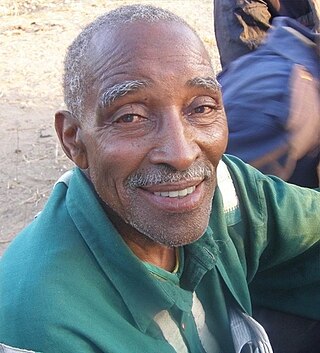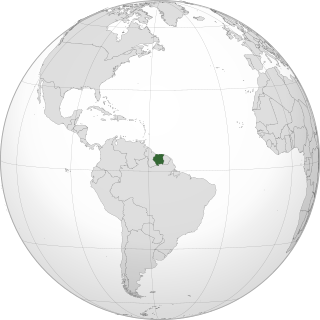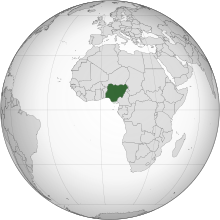
Judaism is an Abrahamic monotheistic ethnic religion that comprises the collective spiritual, cultural, and legal traditions of the Jewish people. Judaism evolved from Yahwism, an ancient Semitic religion of the late Bronze Age to early Iron Age, likely around the 6th/5th century BCE. Along with Samaritanism, to which it is closely related, Judaism is one of the two oldest Abrahamic religions.

The Lemba, Remba, or Mwenye are an ethnic group which is native to South Africa, Malawi, Mozambique and Zimbabwe of mixed Bantu and Yemeni heritage. Within South Africa, they are particularly concentrated in the Limpopo province and the Mpumalanga province.

The Igbo people are an ethnic group in Nigeria. They are primarily found in Abia, Anambra, Ebonyi, Enugu, and Imo States. Ethnic Igbo populations are found in Cameroon, Gabon, and Equatorial Guinea, as migrants as well as outside Africa. There has been much speculation about the origins of the Igbo people, which are largely unknown. The Igbo people are one of the largest ethnic groups in Africa.
Jewish religious movements, sometimes called "denominations", include diverse groups within Judaism which have developed among Jews from ancient times. Today in the west, the most prominent divisions are between traditionalist Orthodox movements and modernist movements such as Reform Judaism originating in late 18th century Europe, Conservative originating in 19th century Europe, and other smaller ones, including the Reconstructionist and Renewal movements which emerged later in the 20th century in the United States.

Conversion to Judaism is the process by which non-Jews adopt the Jewish religion and become members of the Jewish ethnoreligious community. It thus resembles both conversion to other religions and naturalization. The procedure and requirements for conversion depend on the sponsoring denomination. Furthermore, a conversion done in accordance with one Jewish denomination is not a guarantee of recognition by another denomination. Normally, though not always, the conversions performed by more stringent denominations are recognized by less stringent ones, but not the other way around. A formal conversion is also sometimes undertaken by individuals whose Jewish ancestry is questioned or uncertain, even if they were raised Jewish, but may not actually be considered Jews according to traditional Jewish law.

The Abayudaya are a Jewish community in eastern Uganda, near the town of Mbale. They are devout in their practice, keeping kashrut and observing Shabbat. There are several different villages where the Abayudaya live. A community that converted to Judaism in the 20th century, most community members are affiliated with the Reform and Conservative movements of Judaism. In June 2016, Rabbi Shlomo Riskin led a Beit Din that performed an Orthodox conversion for the Putti community of Abayudaya.

African Jewish communities include:
"Who is a Jew?" is a basic question about Jewish identity and considerations of Jewish self-identification. The question pertains to ideas about Jewish personhood, which have cultural, ethnic, religious, political, genealogical, and personal dimensions. Orthodox Judaism and Conservative Judaism follow Jewish law (Halakha), deeming people to be Jewish if their mothers are Jewish or if they underwent a halakhic conversion. Reform Judaism and Reconstructionist Judaism accept both matrilineal and patrilineal descent as well as conversion. Karaite Judaism predominantly follows patrilineal descent as well as conversion.
Jewish leadership has evolved over time. Since the destruction of the Second Temple in Jerusalem in 70 CE, there has been no single body that has a leadership position over the entire Jewish diaspora. Various branches of Judaism, as well as Jewish religious or secular communities and political movements around the world elect or appoint their governing bodies, often subdivided by country or region.
The history of the Jews in India dates back to antiquity. Judaism was one of the first foreign religions to arrive in the Indian subcontinent in recorded history. Desi Jews are a small religious minority who have lived in the region since ancient times. They were able to survive for centuries despite persecution by Portuguese colonizers and nonnative antisemitic inquisitions.
The Bene EphraimBnei Ephraim, also called Telugu Jews because they speak Telugu, are a small community living primarily in Kotha Reddy Palem, a village outside Chebrolu, Guntur District, and in Machilipatnam, Krishna District, Andhra Pradesh, India, near the delta of the River Krishna. They claim to be descendants of the Tribe of Ephraim, of the Ten Lost Tribes, and since the 1980s have learned to practice modern Judaism.
Minhag is an accepted tradition or group of traditions in Judaism. A related concept, Nusach (נוסח), refers to the traditional order and form of the prayers.
The B'nai Moshe, also known as Inca Jews, are a small group of several hundred converts to Judaism originally from the city of Trujillo, Peru, to the north of the capital city Lima. Judaism moved to the south into Arequipa and to other populated cities like Piura.
Capers C. Funnye Jr. is an African-American Conservative rabbi, who leads the 200-member Beth Shalom B'nai Zaken Ethiopian Hebrew Congregation of Chicago, Illinois, assisted by rabbis Avraham Ben Israel and Joshua V. Salter.

Igbo Jews are members of the Igbo people of Nigeria who practice Judaism, with beliefs to have ties to one of the lost tribes of Israel the tribe of Gad.

Accounts of Jews in Madagascar go back to the earliest ethnographic descriptions of the island, from the mid-17th century. Madagascar has a small Jewish population, including normative adherents as well as Judaic mystics, but the island has not historically been a significant center for Jewish settlement. Despite this, an enduring origin myth across Malagasy ethnic groups suggests that the island's inhabitants descended from ancient Jews, and thus that the modern Malagasy and Jewish peoples share a racial affinity. This belief, termed the "Malagasy secret", is so widespread that some Malagasy refer to the island's people as the Diaspora Jiosy Gasy. As a result, Jewish symbols, paraphernalia, and teachings have been integrated into the syncretic religious practices of some Malagasy populations. Similar notions of Madagascar's supposed Israelite roots persisted in European chronicles of the island until the early 20th century, and may have influenced a Nazi plan to relocate Europe's Jews to Madagascar. More recently, the possibility of Portuguese Jewish conversos making contact with Madagascar in the 15th century has been proposed.

The history of the Jews in Suriname starts in 1639, as the English government allowed Spanish and Portuguese Jews from the Netherlands, Portugal and Italy to settle the region, coming to the old capital Torarica.

The history of the Jews in Peru begins with the arrival of migration flows from Europe, Near East and Northern Africa.
Black Judaism is Judaism that is practiced by communities of African descent, both within Africa and within the African diaspora, including North America, Europe, Israel, and elsewhere. Significant examples of Black Judaism include Judaism as it is practiced by Ethiopian Jews and African-American Jews. Jews who may be considered Black have existed for millennia, with Zipporah sometimes considered to be one of the first Black Jews who was mentioned within Jewish history.
The history of the Jews in Gabon dates back to at least the 17th century, when Black Jewish communities existed along the Gabonese coastline. The contemporary Jewish community in Gabon is mostly composed of African jews that descended from the tribe of judah.











